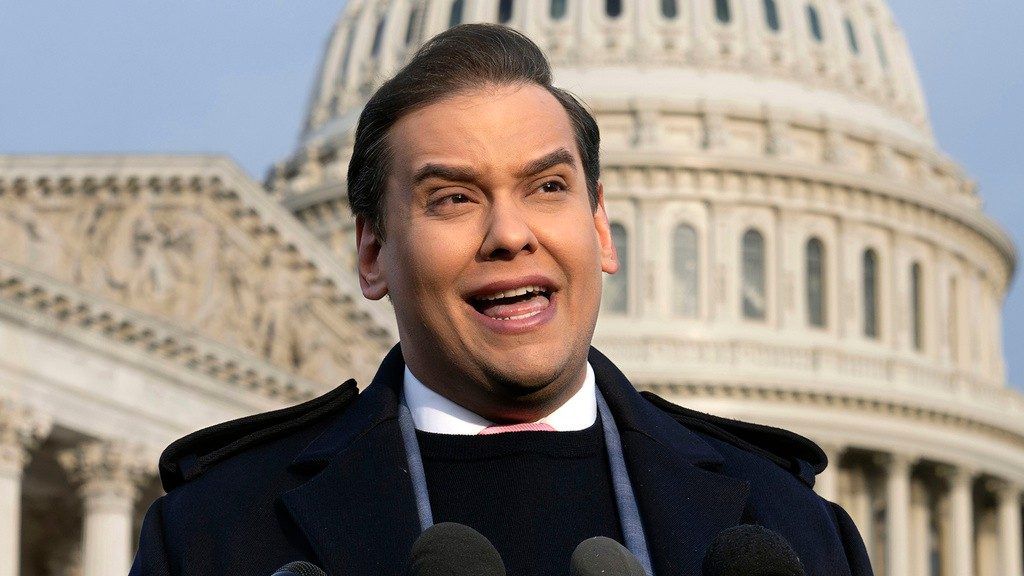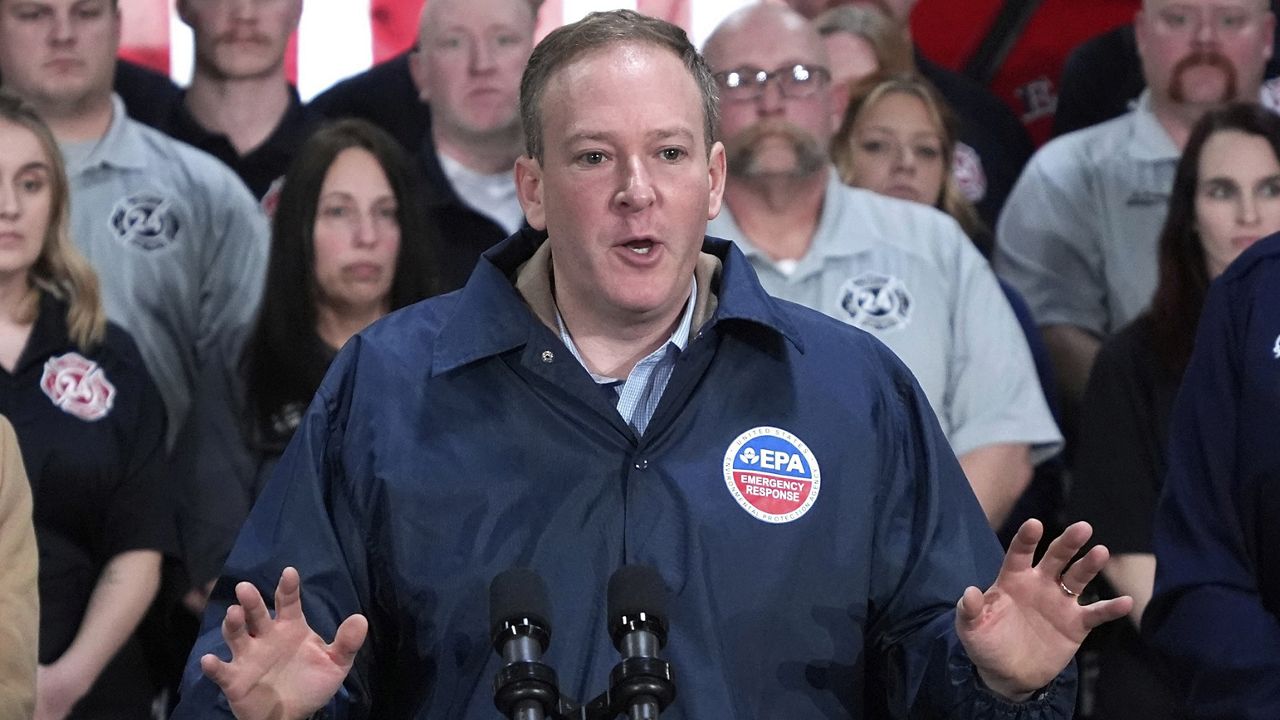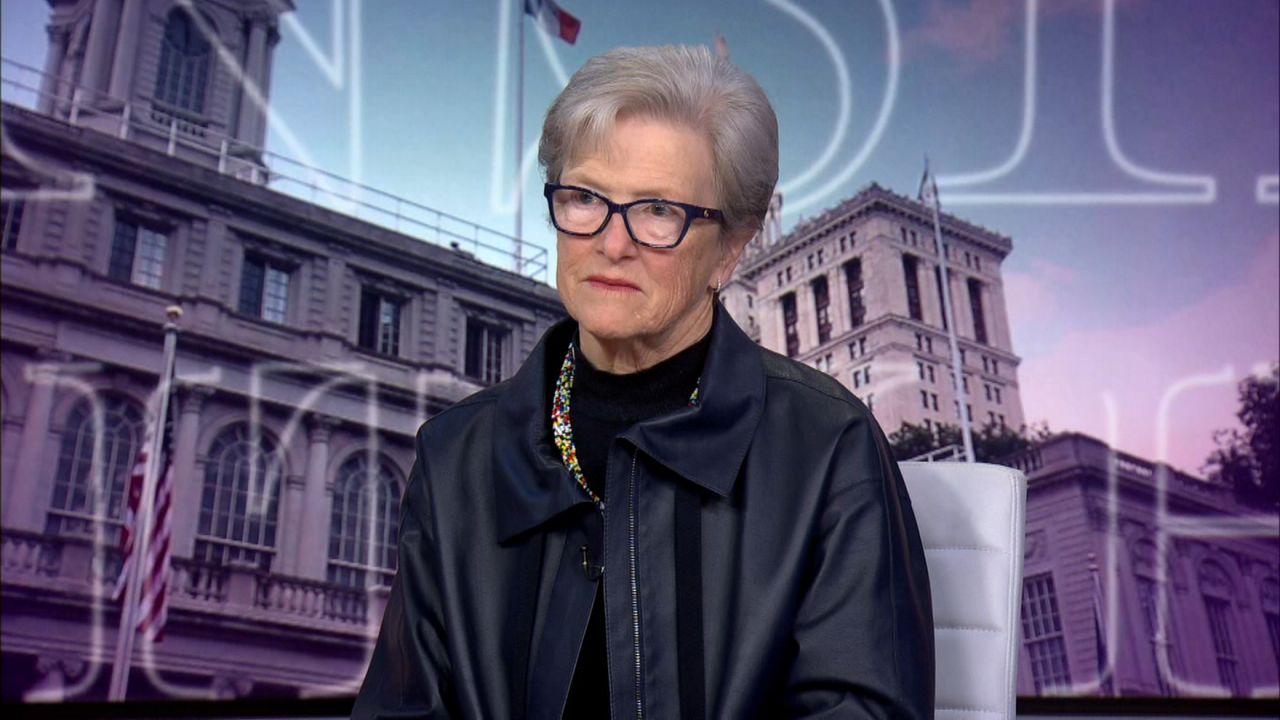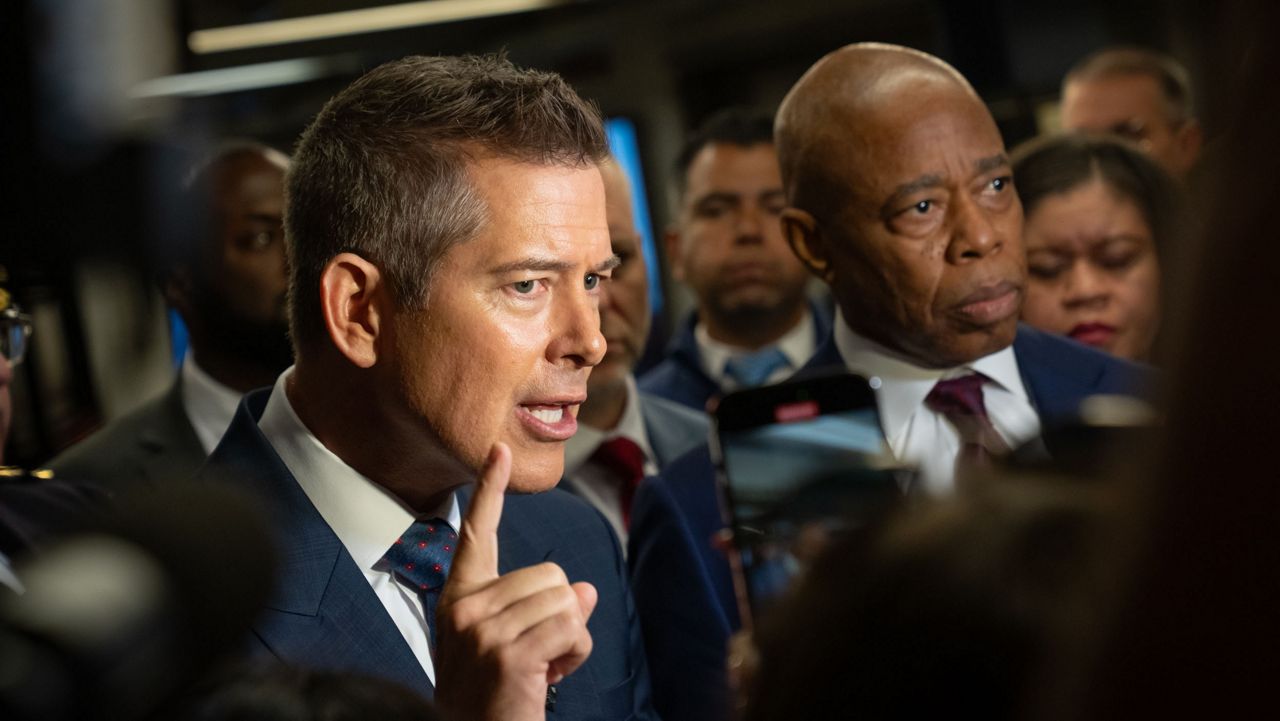Mayor Eric Adams defended his decision to suspend parts of the city’s “right-to-shelter” law on Thursday, calling it a difficult choice forced by a “real-life humanitarian crisis.”
Speaking to reporters a day after he issued an executive order suspending sections of the law, which requires the city to provide shelter to anyone in need, the mayor said his administration was “doing the right thing.”
What You Need To Know
- Mayor Eric Adams defended his decision to suspend parts of the city’s “right-to-shelter” law on Thursday, calling it a difficult choice forced by a “real-life humanitarian crisis"
- His decision was met with swift criticism from the Legal Aid Society and the Coalition for the Homeless, which raised concerns that suspending the law’s “key protections” could force homeless families with children into congregate shelters
- Adams also stood by his plan to start busing migrants from New York City to the Hudson Valley, despite fierce opposition from elected officials in the area
Thousands of migrants could arrive in the five boroughs each day after Title 42 — a pandemic-era order allowing authorities to turn migrants and asylum seekers away at the southern border — expires Thursday night into Friday, he said.
“No one thought about a humanitarian crisis when they first took this court case of right-to-shelter. Do you know last week we got 4,200 people? We get an average of 500 people a day, and Title 42 is not lifted,” he said. “And so this was a hard decision, but it’s the right decision.”
Wednesday’s order was met with swift criticism from the Legal Aid Society and the Coalition for the Homeless, which issued a joint statement saying they were “evaluating the executive order and considering all of our options, including litigation.”
In the statement, the two groups raised concerns that suspending the law’s “key protections” could force homeless families with children into congregate shelters, which have shared bathrooms and kitchens.
“We recognize the efforts from city staff to avoid putting people in harm’s way, but we’ve learned through experience that congregate shelters put families and children at risk of communicable disease and sexual assault, and they adversely impact mental health,” they said.
Asked about the groups' concerns Thursday, Adams said it was “just not realistic when you’re getting 4,200 people in your city that you’re going to find a place with kitchen and a bathroom.”
“Our desire is not to put the children and families in dormitory settings. Our desire is to manage a humanitarian crisis,” he said. “Our children and families are not sleeping on the streets. We are feeding thousands of people, over 60,000 that came through our system.”
Adams also stood by his plan to start busing migrants from New York City to the Hudson Valley, despite fierce opposition from elected officials in the area, while rejecting comparisons to Texas Gov. Greg Abbott, who began busing migrants directly to the city last August.
Two buses of migrants from the five boroughs pulled into the Town of Newburgh Thursday morning, marking the first arrivals under Adams’ contentious plan and drawing the ire of Orange County Executive Steve Neuhaus, who called the process “a disorganized disaster.”
Adams, Neuhaus claimed, failed to notify county officials that the buses would arrive Thursday — an assertion the mayor disputed.
“We are communicating with the officials up there on what we’re doing. Now, some may not like it, but people can’t say we’re not communicating,” Adams said. “We’re coordinating with others, and it took us over a year, because we tried to hold on and do this the best we can on our own.”
“And we must be clear on what we’re doing, because some people try to compare it to what Abbott did. We’re paying for it. We are only taking volunteers,” he added. “Abbott compelled people.”
Adams’ remarks came two days after the Town of Orangetown in Rockland County secured a temporary restraining order barring a hotel in one of its hamlets from housing migrants from New York City.
The mayor on Thursday said his administration planned to “challenge all of the legal obstacles that are attempting to be placed in our way.”
“We are going to challenge them because it will set a bad precedent,” he said. “If someone is saying in the state of New York that you are not allowed to come here, that’s just a bad precedent.”
Speaking alongside Adams, Manuel Castro, the head of the Mayor’s Office of Immigrant Affairs, said the city’s “right-to-shelter” decision had “nothing to do with us not wanting to help people.”
“We’ll continue to help asylum seekers, but it’s more that we no longer can physically accommodate people that request emergency shelter,” Castro said.
“Without emergency shelter space provided outside the city, asylum seekers that show up to New York City today, tomorrow, in the coming days and weeks, might end up in the street,” he added. “And that is not something we want to see.”









